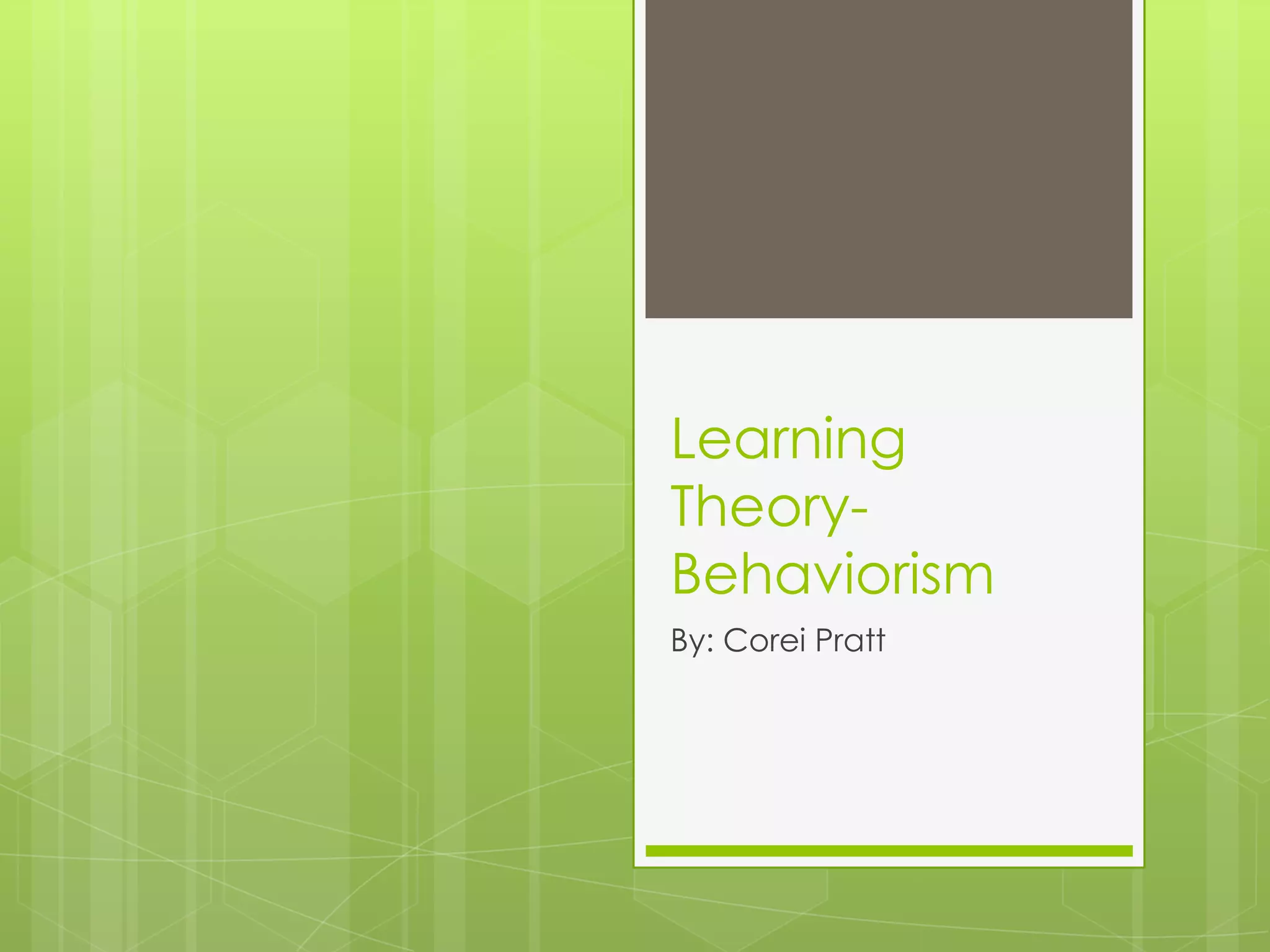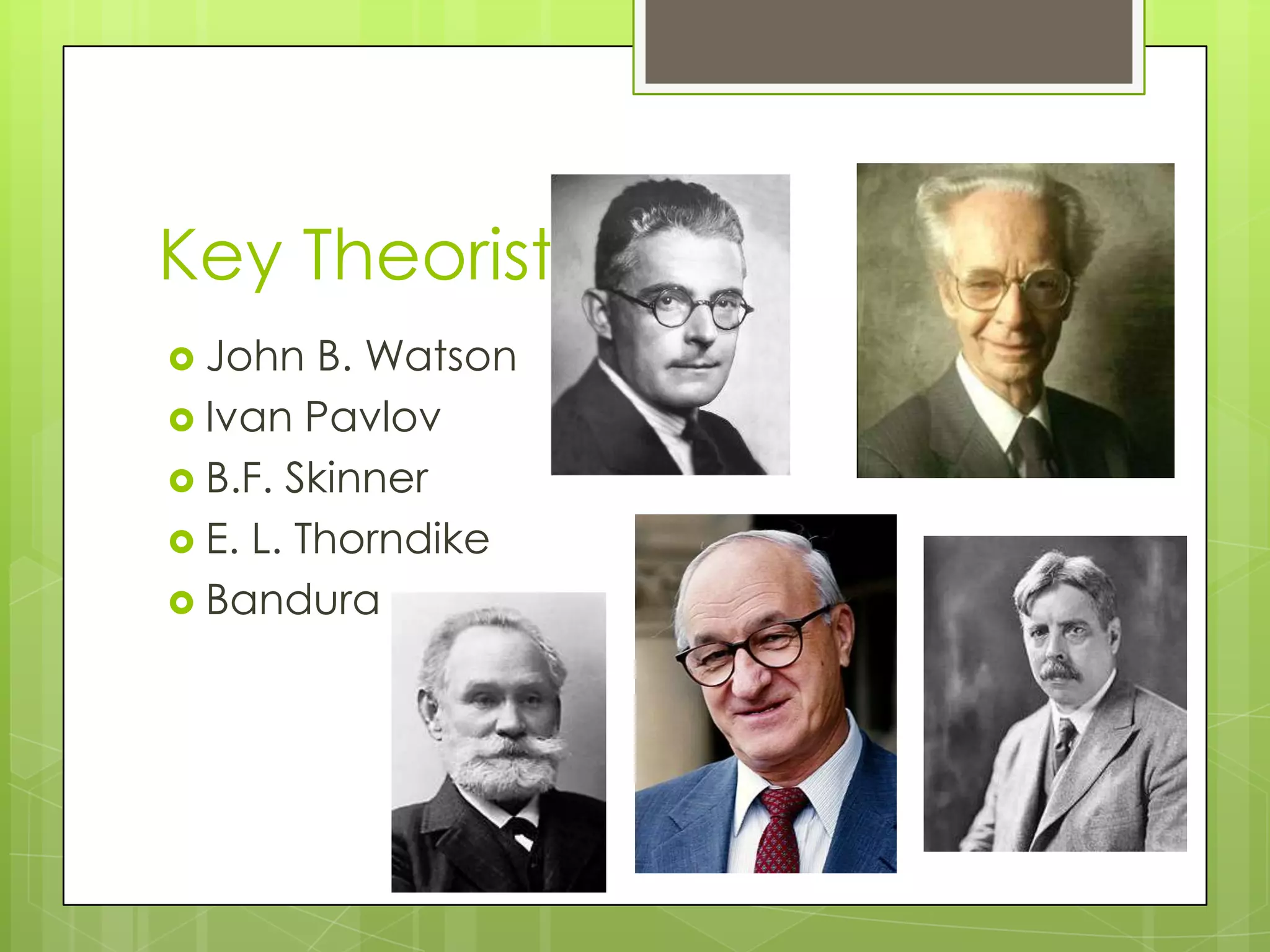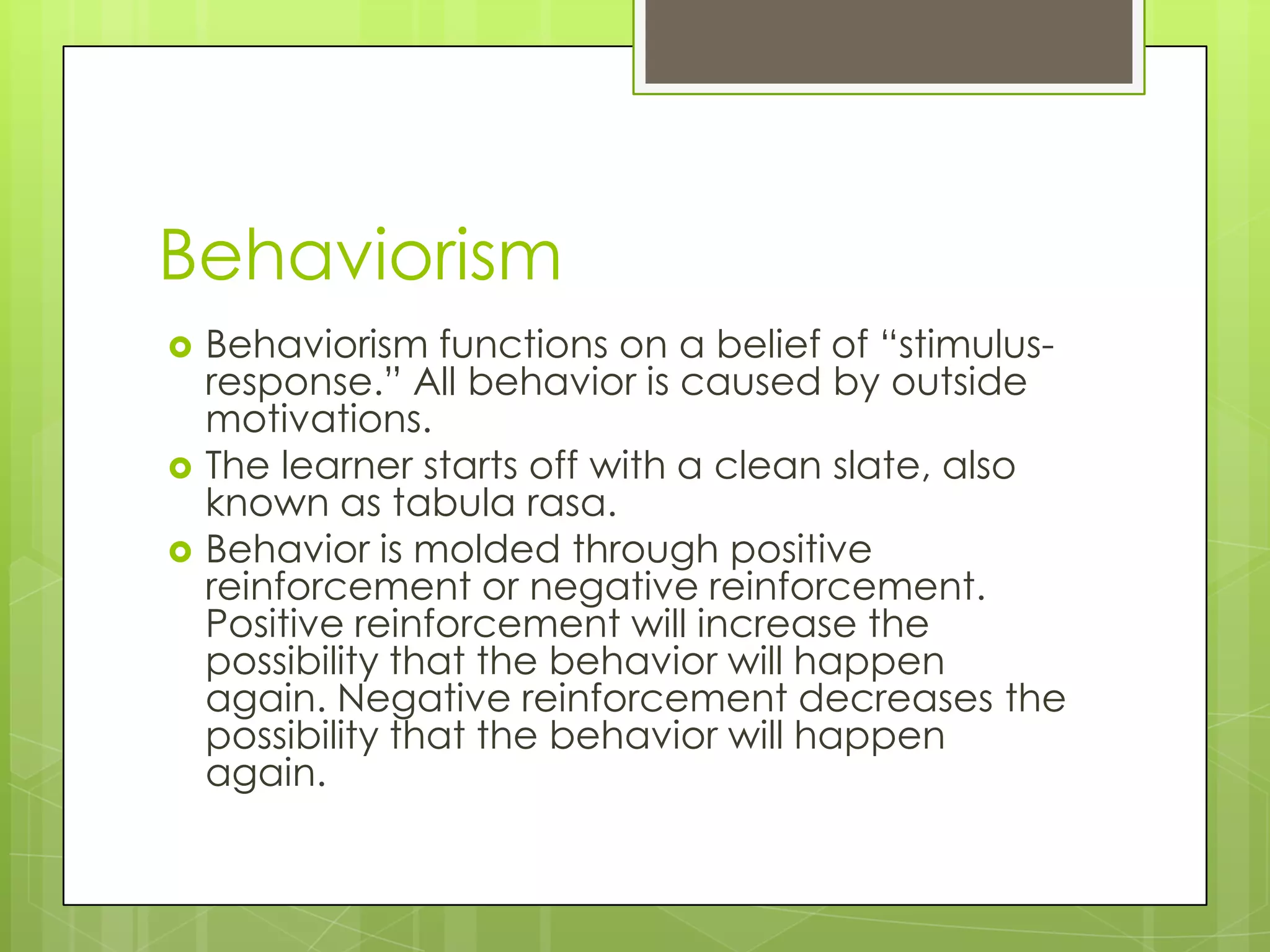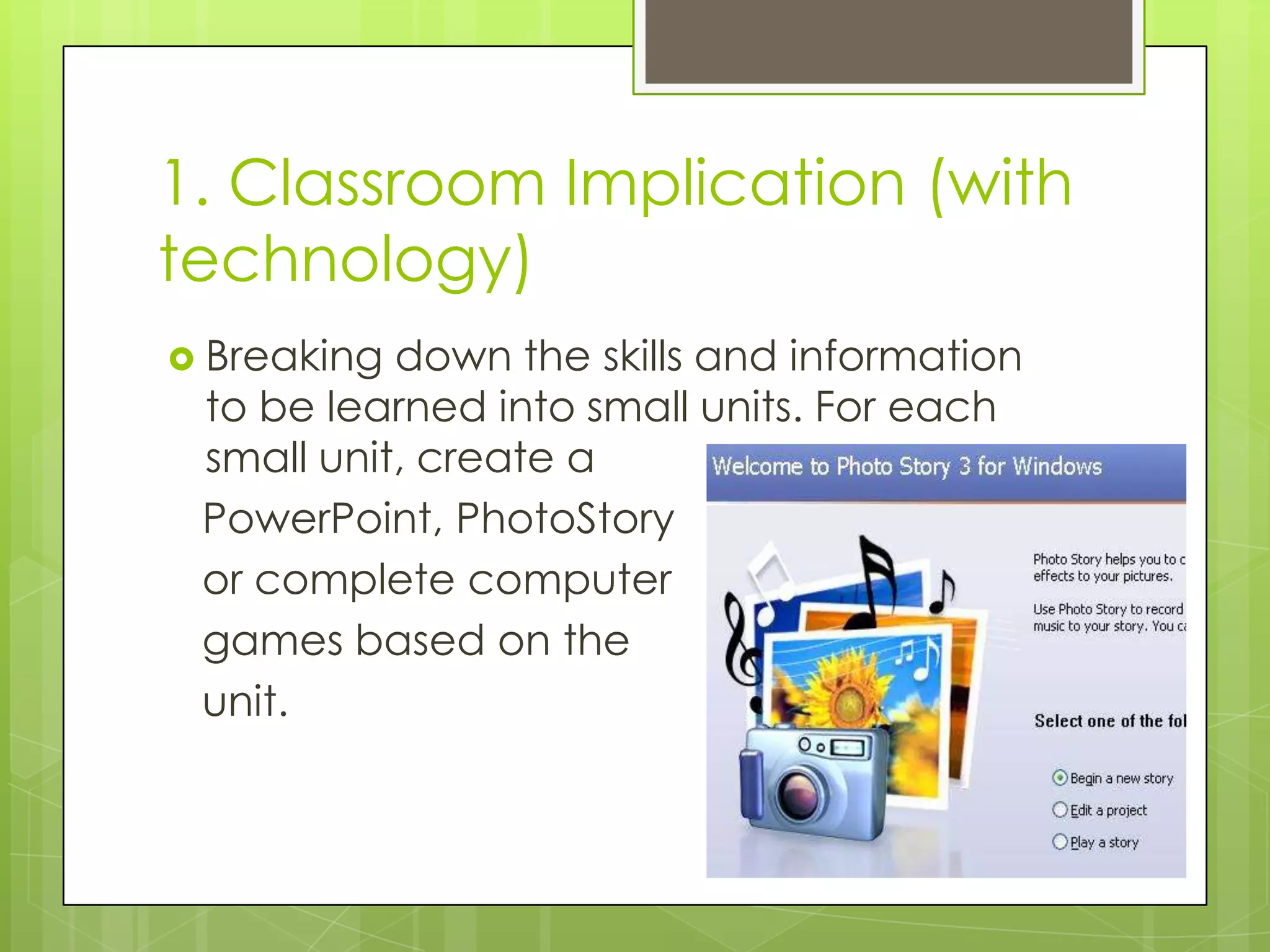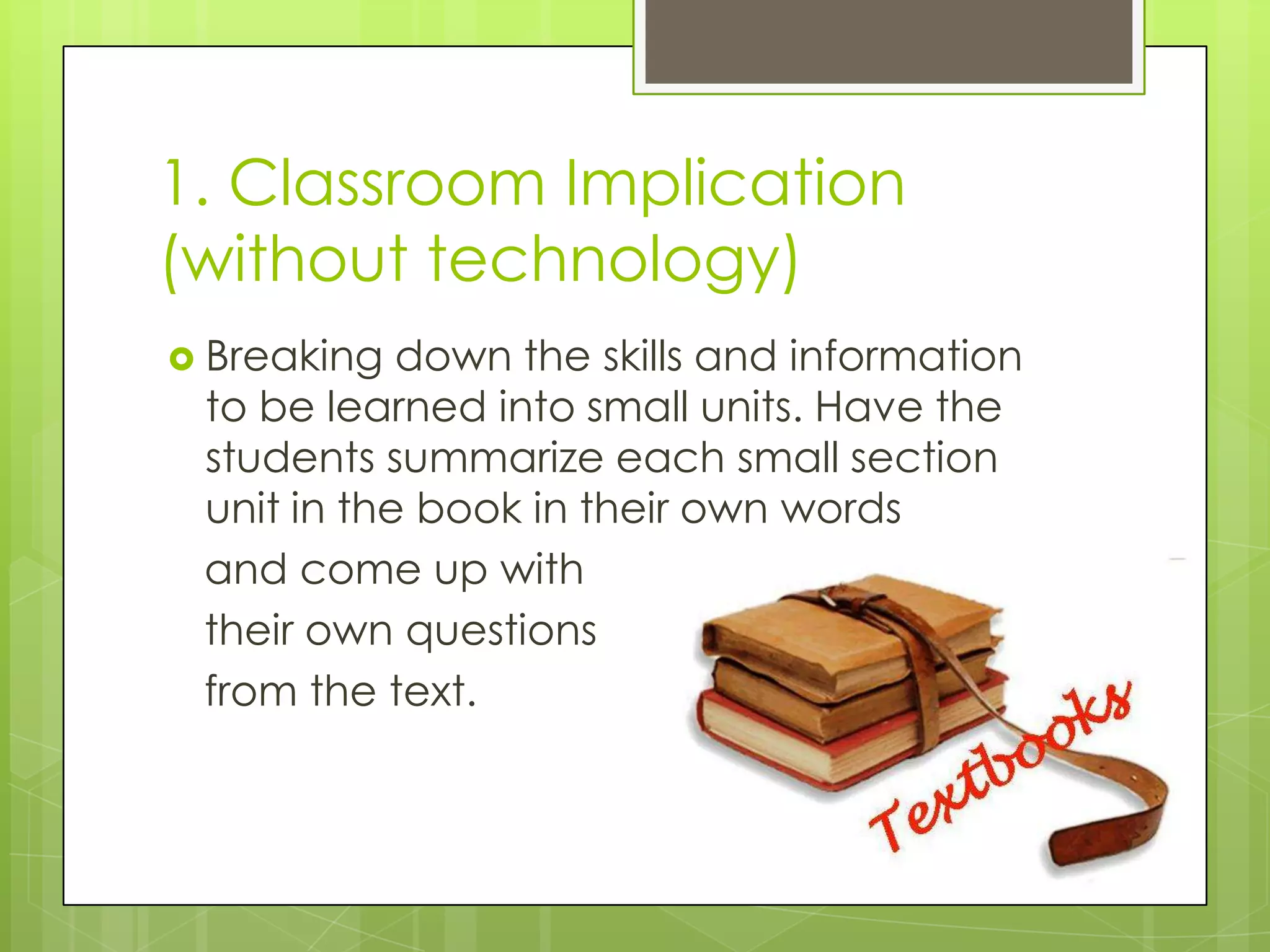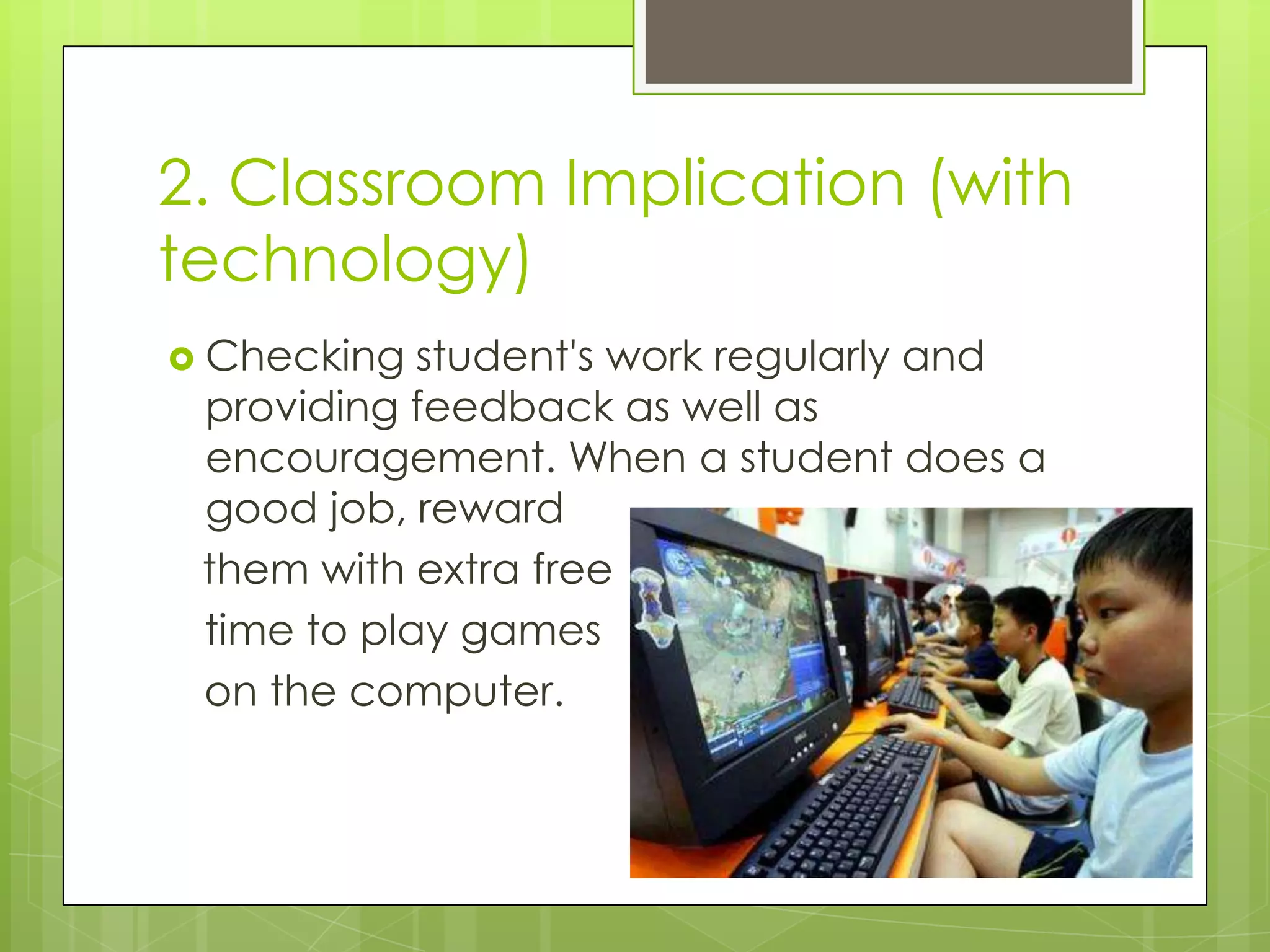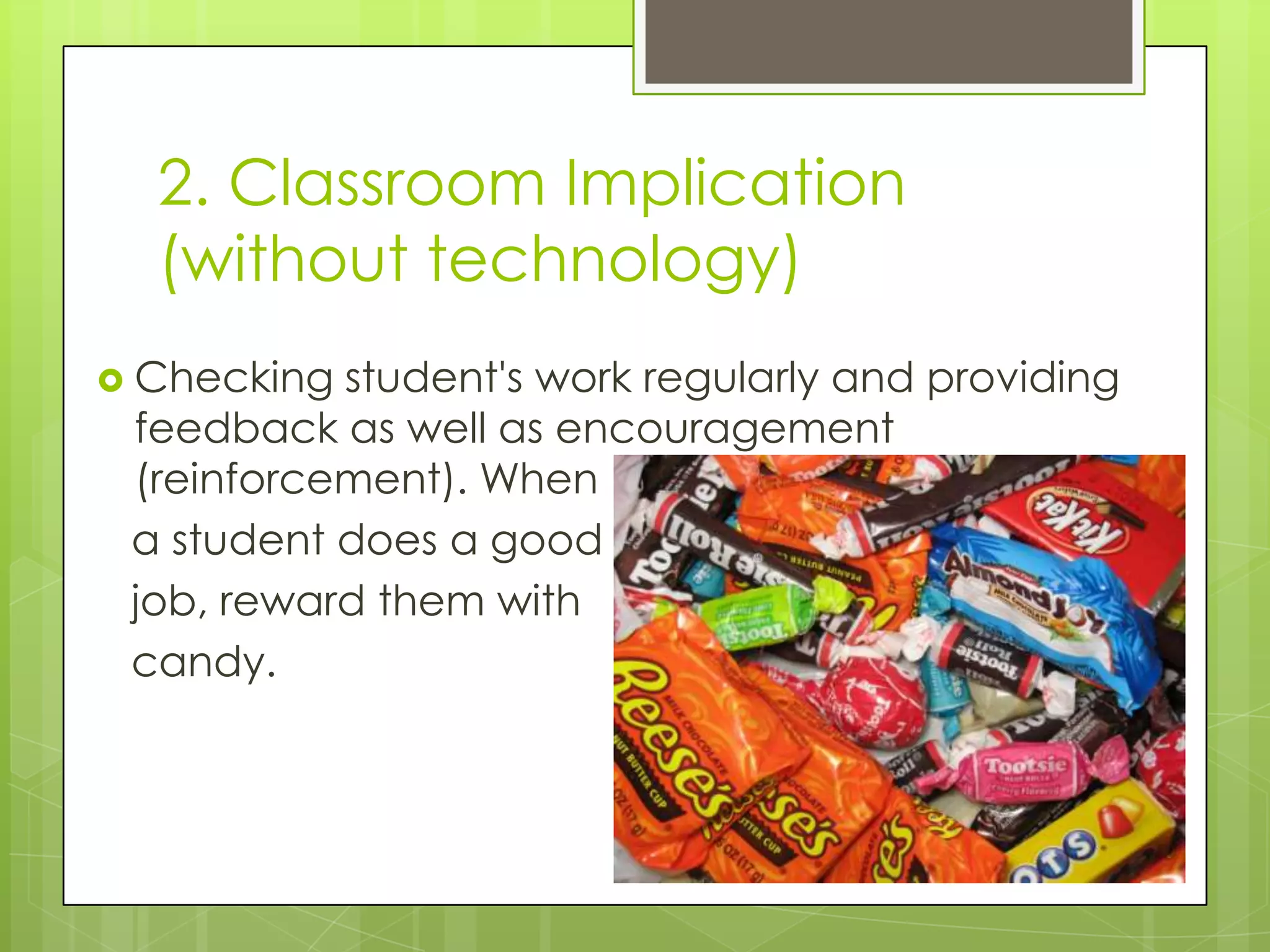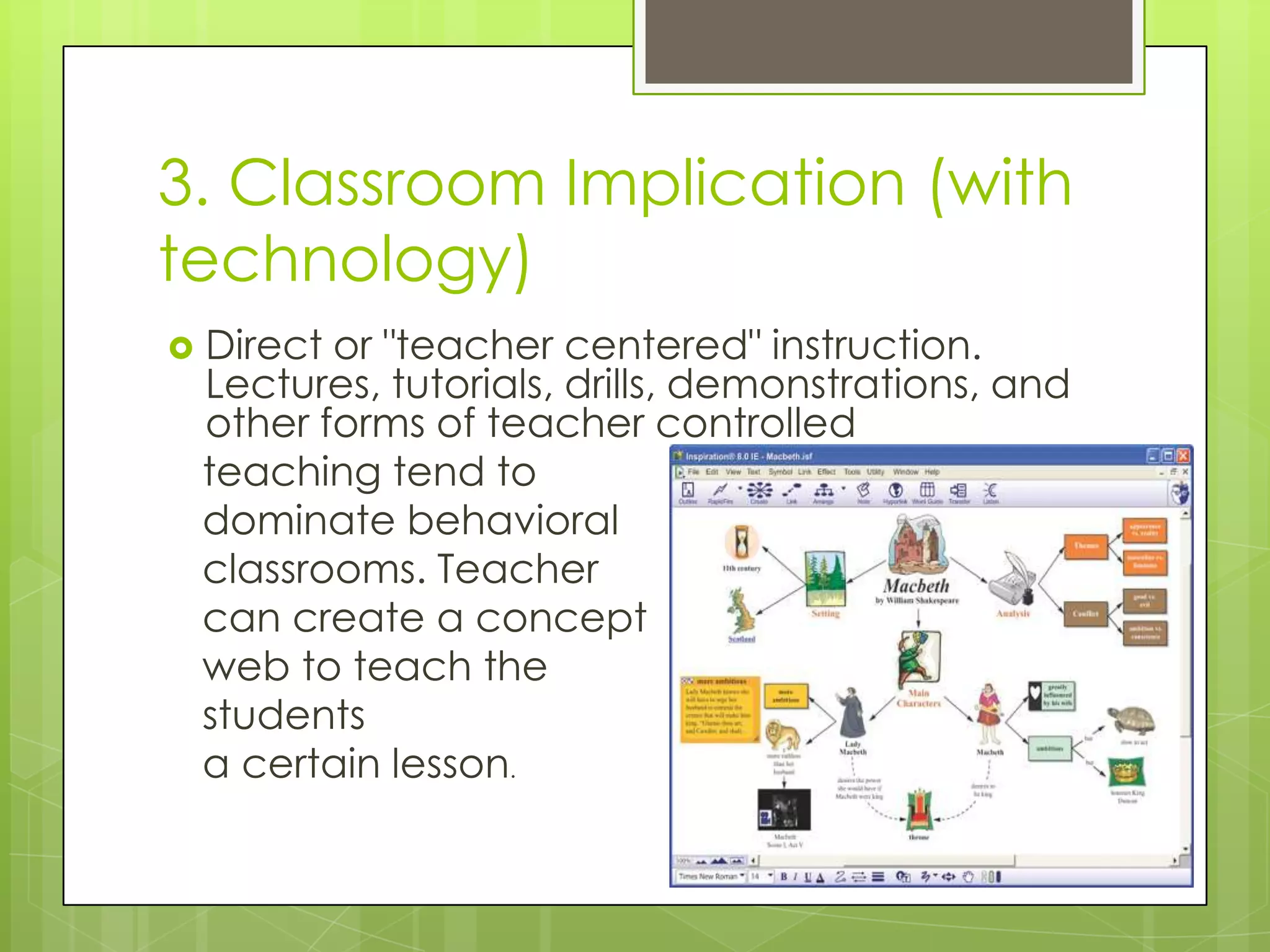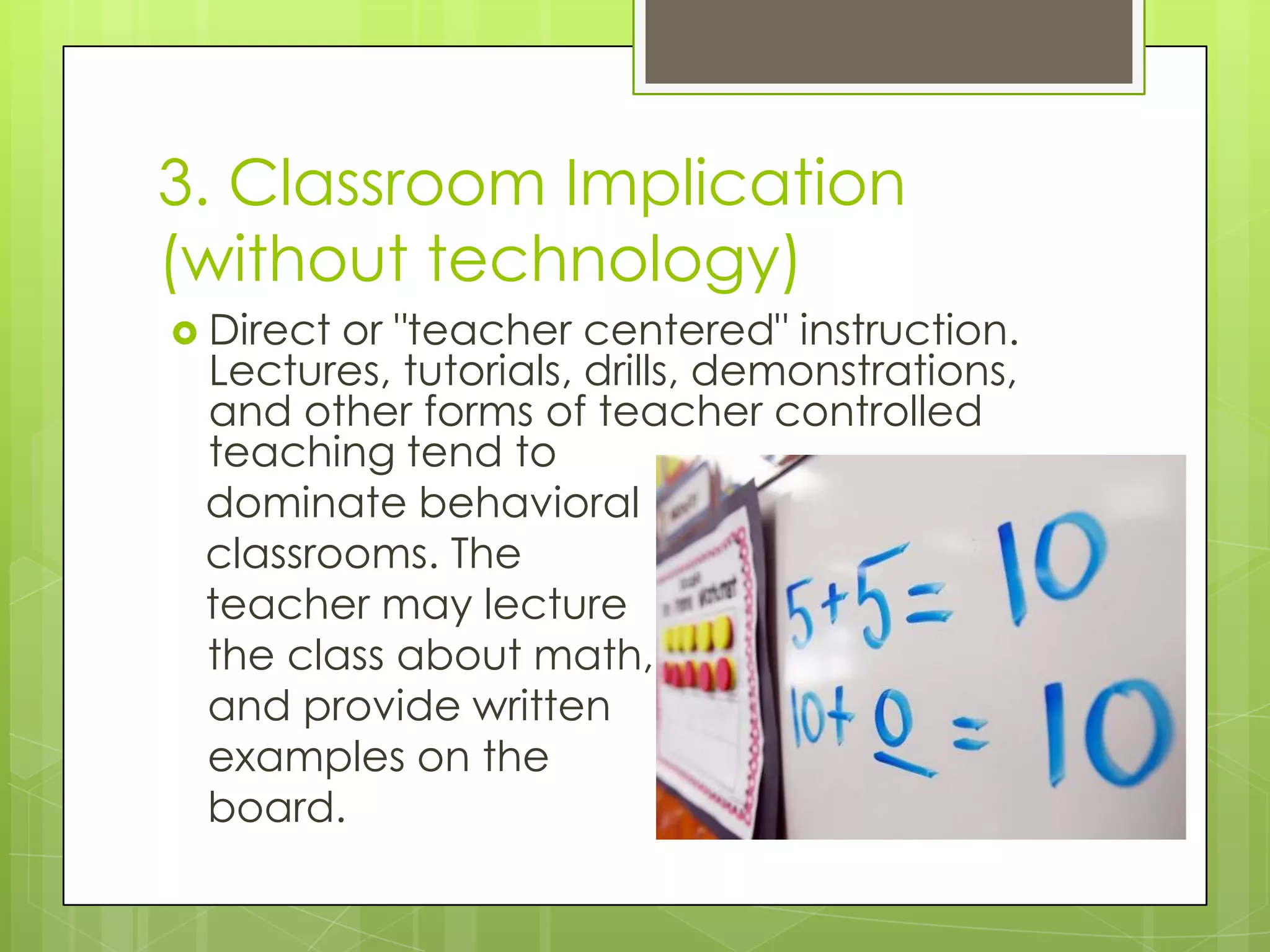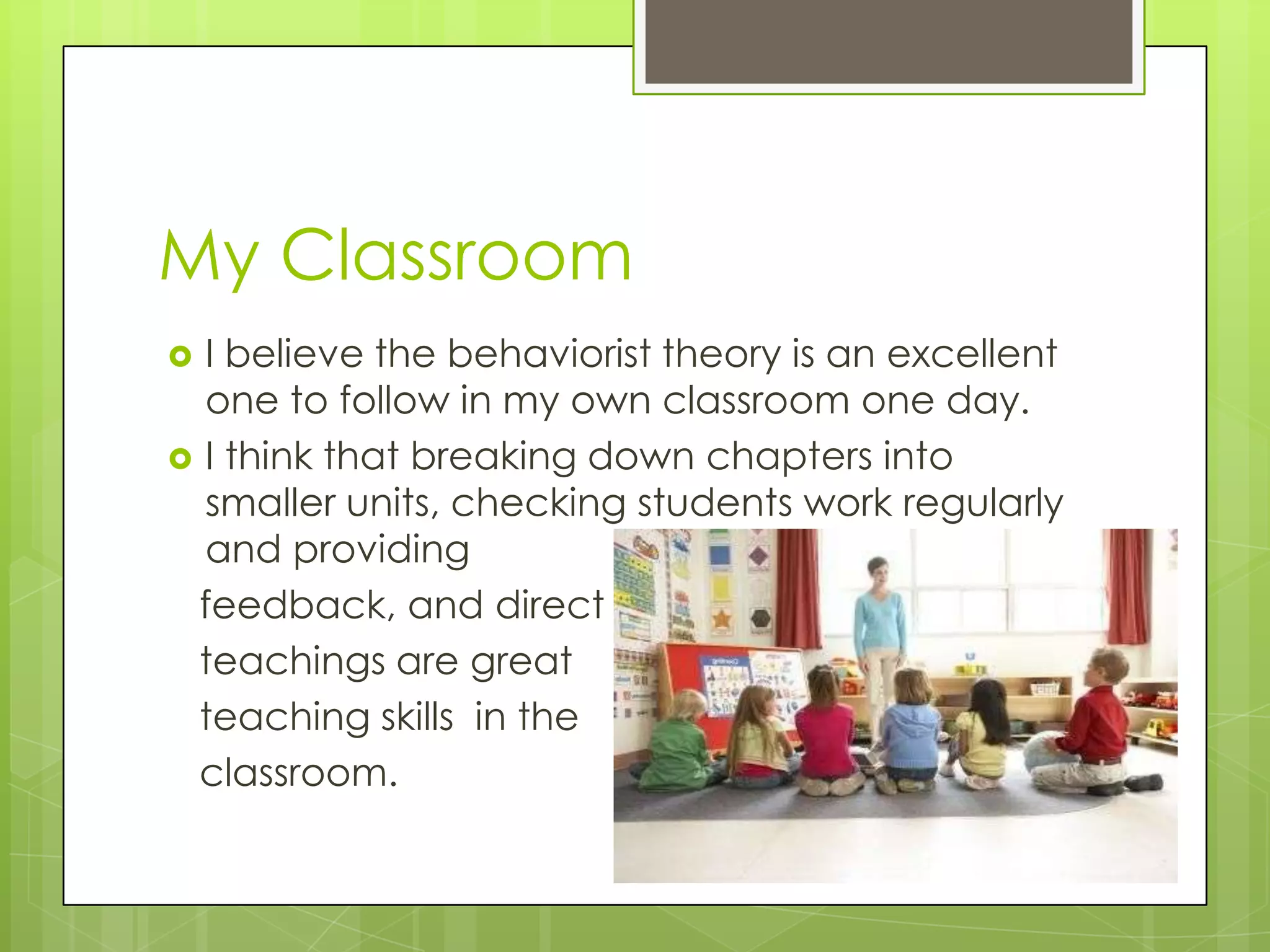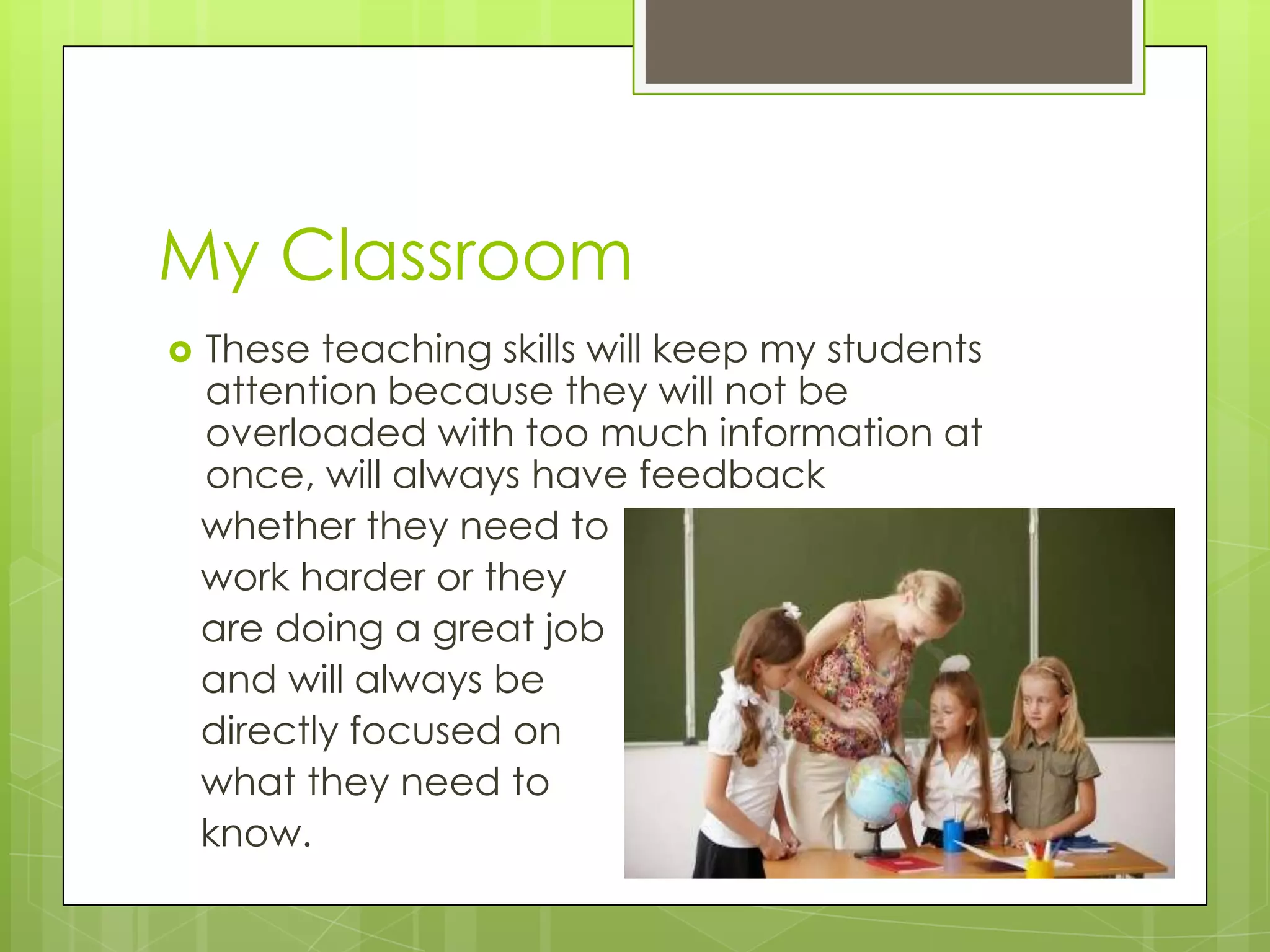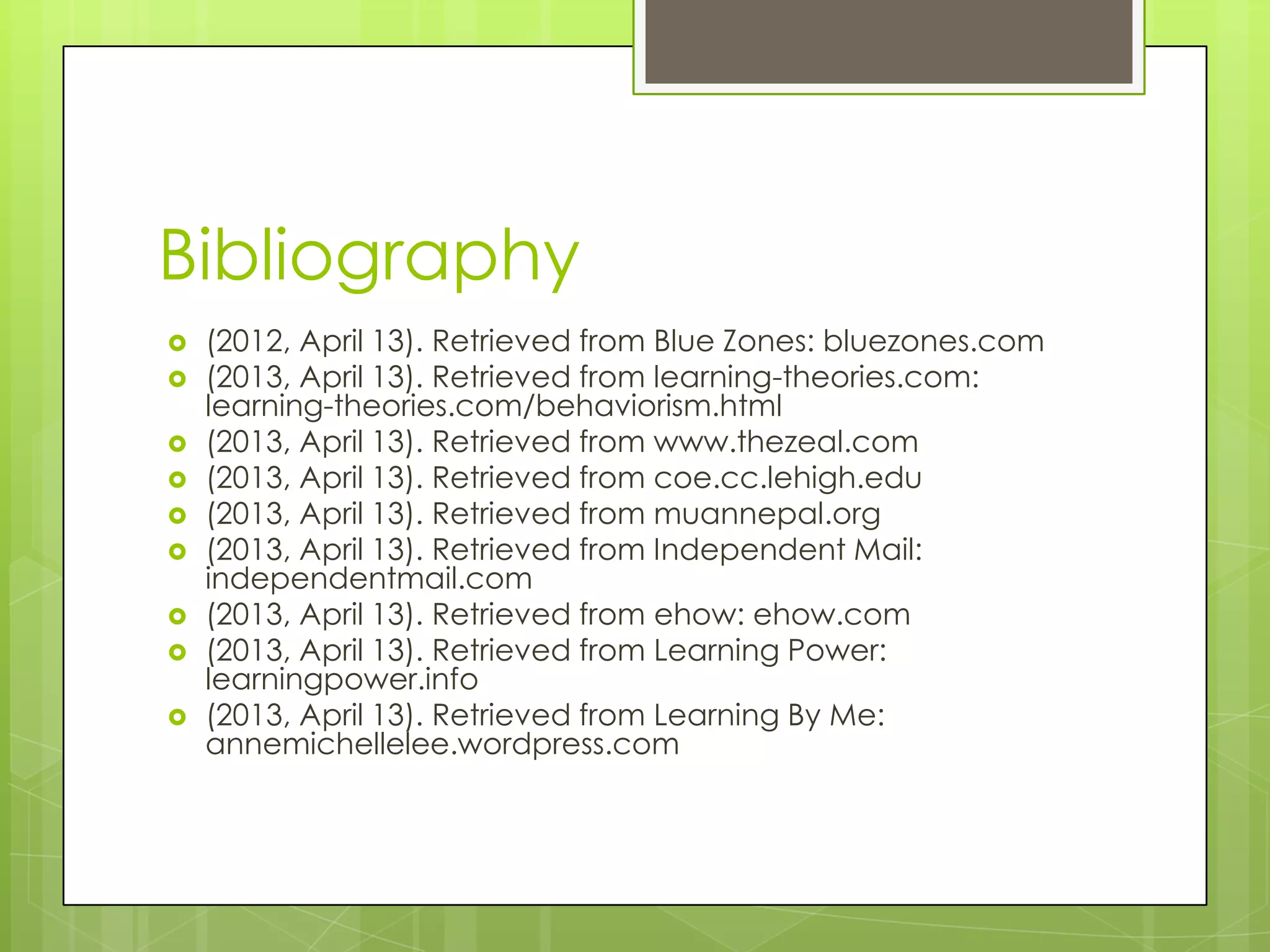This document summarizes the learning theory of behaviorism. It outlines the key theorists such as Watson, Pavlov, and Skinner and explains that behaviorism is based on the idea that all behavior is caused by external stimuli and can be shaped through reinforcement or punishment. The document then provides examples of classroom implications, including breaking concepts into small units, providing regular feedback, and teacher-centered instruction. It concludes by stating the author's view that behaviorism provides excellent guidance for their future classroom.
